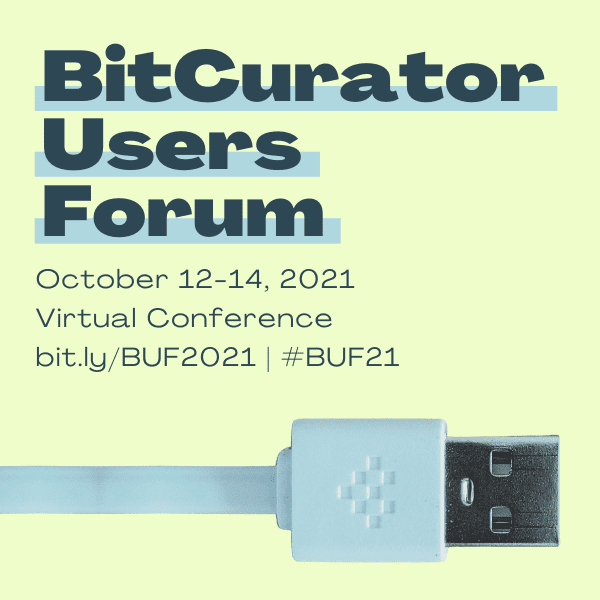Session 1: Remote Workflows
October 12, 2021
8:30 am – 9:35am Pacific / 11:30 am-12:35pm Eastern
DARTing to the Future: Remote File Transfers During the COVID-19 Pandemic
Christina Velazquez Fidler, The Bancroft Library, University of California, Berkeley; Andrew Diamond, APTrust
During the Covid-19 pandemic and subsequent lockdown, The Bancroft Library explored how to best continue the acquisition and transfer of born digital materials from donors and organizations. During this time, the UC Berkeley Academic Senate Office expressed a desire to transition from a paper based transfer of records to a more efficient streamlined transfer process of their born digital records.
After exploring several transfer tools, The Bancroft Library determined that the Digital Archivist’s Resource Tool, or DART, would best fit the needs of remote file transfers. APTrust created DART in 2018 to provide a simple drag-and-drop application to package and upload materials. DART provides a GUI that is approachable for a donor, regardless of their comfort level with technology, to navigate and package files. The available documentation and opportunities for direct communication through Github, made this an ideal system to use for the remote environment. It allows users to create Submission Information Packages (SIPs) in BagIt format that conform to pre-configured BagIt profiles.
This presentation provides an overview of DART as a file packaging tool and describes how The Bancroft Library utilized DART and trained UC Berkeley Academic Senate departmental staff to package files for remote transfer and how these workflows could be replicated.
Make It Work: Digital Archiving Without Your Toolkit
Elena Colón-Marrero, Computer History Museum
What is a Digital Archivist without their workstation? This is a question I found myself asking when I transitioned to remote work. I had spent the previous two years developing workflows that utilized our various digital workstations to conform to “best practices”. However, I was not prepared to process materials without the usual set of digital archiving tools. No more BitCurator, no Isobuster, and no virus scanning! This presentation will discuss challenges and considerations for remote born-digital work when you do not have access to your usual tools and workstations. Colón-Marrero will focus on grappling with born-digital work from states away and the reliance on others to do tasks they have never done before. Working with born-digital materials requires a continually iterative process where fully formed solutions may not be solutions at all. What does coming to terms with a new “good enough” mean when you are time zones away?
Workflow in Progress: A Born-Digital Case Study
Kiera Sullivan, UC San Diego Library; Tori Maches, UC San Diego Library
This lightning talk presents the steps taken by UC San Diego Library Special Collections & Archives to update their born-digital processing workflow to one that is efficient, iterative, and scalable.
Prior to the COVID-19 pandemic, all of SC&A’s born-digital processing was accomplished using one onsite forensic workstation. Historically, disk imaging was the default and our digital archivist did most of the digital processing. This workflow lacked scalability and was a known issue, one which we had started to address before the pandemic. The remote work environment caused by the pandemic made updating our workflows even more of a priority.
With this in mind, we will discuss the ways we worked to make processing possible without the workstation and create a more scalable workflow, using a recently accessioned batch of digital records as a test case. During this process, we removed former bottlenecks and created a workflow that complies with “good enough” practices and follows the department’s efficient processing model, incorporating new tools – such as Bulk Reviewer and TreeSize – and some we were already using. Our resulting test workflow is no longer dependent on onsite access to one specific workstation, and is better equipped for collections with a large volume of material.
We will conclude with lessons learned, and ways in which our workflow developed after a return to onsite work.
Schedule